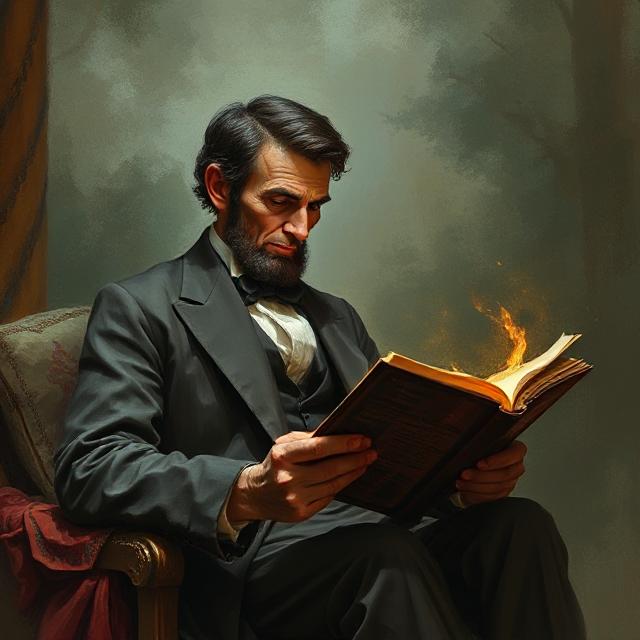Summary
Believe it reading fiction can really help you or someone become a better leader. It teaches you how to understand people, handle emotions, and make better decisions. When you read stories, you see the world through other people’s eyes. This helps you become more kind, smart, and thoughtful — all important for good leadership.Fiction also helps you relax, think clearly, and speak better. Many famous leaders, like Barack Obama and Jeff Bezos, say reading novels helped them lead well.
If you want to grow as a leader, try reading novels often. It’s not just fun — it makes you stronger inside.

In a world overflowing with leadership manuals, productivity hacks, and business books, fiction often takes a back seat. After all, how can novels — stories about imagined people and places — possibly shape strong, effective leaders?
Surprisingly, science and experience both point to this truth: reading fiction can significantly improve your leadership skills. From emotional intelligence and decision-making to empathy and resilience, fiction taps into the very core of what it means to lead people with insight and compassion.
In this article, we’ll explore the science behind fiction’s power, how it shapes the mind of a leader, and why some of the world’s top leaders are avid readers of literature.
1. Fiction Builds Empathy — the Foundation of Leadership
At the heart of great leadership lies empathy — the ability to understand and connect with others’ feelings, perspectives, and needs. Fiction is one of the most powerful tools to develop this trait.
🔬 The Science:
Studies by psychologists like Raymond Mar and Keith Oatley have shown that individuals who read fiction regularly perform better on tests measuring “Theory of Mind” — our capacity to grasp others’ thoughts and emotions. This ability is essential for managing people, resolving conflict, and building strong teams.
When you read a novel, you aren’t just observing a character — you become them. You experience life from another’s point of view. That’s a skill every leader needs in a diverse, human-centered workplace.
2. Complex Characters Improve Strategic Thinking
Fiction isn’t just about feelings. It’s about navigating complexity — morally ambiguous characters, unpredictable plot twists, and high-stakes decisions.
As a leader, you’re often forced to make tough calls without perfect information. Reading complex narratives can help your brain practice these moments in a safe, imaginative environment.
Think of Atticus Finch from To Kill a Mockingbird, or Tyrion Lannister from Game of Thrones — flawed, strategic thinkers who understand people and power. These characters sharpen your judgment and widen your moral lens.
3. Fiction Broadens Your Worldview
Leaders today manage diverse teams across cultures and generations. Fiction helps you step into different worlds, absorb new perspectives, and understand motivations that differ from your own.
Whether it’s reading about a woman growing up in 19th-century Iran (Persepolis) or a soldier surviving World War II (All the Light We Cannot See), fiction gives you cognitive flexibility — a must-have trait in a global, ever-changing world.
4. Stories Strengthen Communication and Influence
Leadership is storytelling. The best leaders don’t just give orders — they inspire, influence, and connect through narrative.
Reading fiction trains your brain in the patterns of story — how to build tension, deliver a message, and leave emotional impact. This helps you craft more powerful presentations, team messages, and even social media content.
5. Fiction Helps You Reflect and Recharge
Leadership is demanding. Burnout is real. Fiction provides a mental break — not just for entertainment, but for reflection.
Reading activates the imagination, lowers stress, and boosts creativity. According to a 2009 study by the University of Sussex, reading can reduce stress by up to 68%, outperforming music, walking, and even tea.
Sometimes the best strategic thinking happens not during a business meeting, but while reading a novel on the train home.
6. Real-Life Leaders Who Read Fiction
You’re not alone in turning to fiction to strengthen leadership.
- Barack Obama often shares his reading lists, full of novels that explore race, identity, and the human experience.
- Jeff Bezos credits The Remains of the Day for teaching him about regret, restraint, and service — ideas he applied at Amazon.
- Steve Jobs was deeply influenced by Autobiography of a Yogi, a book filled with spiritual and imaginative insight.
These leaders aren’t just consumers of knowledge — they are students of humanity.
7. How to Read Fiction Like a Leader
Want to get started? Here’s how to read fiction with purpose:
- ✅ Choose diverse stories and authors
- ✅ Reflect on how characters solve problems and handle conflict
- ✅ Journal your thoughts after reading
- ✅ Ask: “What leadership lesson can I take from this?”
- ✅ Read regularly — even 20 minutes a day matters
📚 Fiction Book Recommendations for Leaders:
- To Kill a Mockingbird by Harper Lee — empathy and integrity
- The Remains of the Day by Kazuo Ishiguro — reflection and restraint
- Ender’s Game by Orson Scott Card — leadership under pressure
- The Left Hand of Darkness by Ursula K. Le Guin — diversity and diplomacy
- Beloved by Toni Morrison — trauma, resilience, and legacy
Conclusion: The Story-Driven Leader
Reading fiction isn’t an escape from leadership — it’s training for it.
It teaches you to understand people, manage emotions, navigate complexity, and communicate powerfully. In a world that values emotional intelligence as much as technical skill, fiction offers leaders a deep, human advantage.
So next time you’re choosing your next book, don’t skip the novel. Your leadership might just depend on it.
FAQ
1. Can reading fiction improve leadership skills?
Yes. Fiction helps build empathy, emotional intelligence, and better decision-making — all key qualities in good leaders. It also improves communication and helps leaders understand different people and situations.
2. How is fiction different from non-fiction leadership books?
Non-fiction gives facts and strategies, while fiction trains your mind to understand people and emotions. Fiction lets you practice thinking like others, which helps you connect better with your team.
3. What kind of fiction should a leader read?
Leaders should read stories with strong characters, moral dilemmas, or diverse settings. Good examples include To Kill a Mockingbird, The Remains of the Day, and Ender’s Game.
4. How often should I read fiction to see results?
Even 20 minutes a day can help. Reading regularly builds understanding over time. You don’t have to read fast — just stay consistent.
5. Do any famous leaders read fiction?
Yes! Barack Obama, Jeff Bezos, and Steve Jobs are all known to enjoy fiction. They believe novels helped them become better thinkers and more understanding leaders.
6. Can reading fiction help with public speaking or communication?
Yes. Fiction teaches how stories work, which can make your speaking and writing more powerful. It helps you explain ideas clearly and connect emotionally with others.
7. Is it better to read paper books or eBooks?
Both work well. Choose the format that makes you comfortable and helps you stay focused. What matters most is building a habit of reading.
